The technology courses here at Polk County High School are designed to challenge the students and help them obtain the skills they will need out in the real world. We offer everything from Database Design to Web Design. Each course has its own uniqueness and can range in difficulty, providing every student with opportunities no matter what skill level they have.
Listed below are the courses in the Polk County High School Technology Department:
- Database Design
- E-Business
- Tech Foundation
- Info Tech
- Visual Art Design
- Keyboarding / Document Creation
- Video Production
- Web 1
- Web 2
- Web 3
Database Design
 The student will analyze and apply database design techniques and management method for organizing and maintaining files. The student will apply keying, typography, and layout and design skills in creating, designing, entering data, importing and exporting data, and printing database object and data. At the completion of the course, students will have database management skills enabling them to design and implement a relational database application. Student proficiency will lead to software certification.
The student will analyze and apply database design techniques and management method for organizing and maintaining files. The student will apply keying, typography, and layout and design skills in creating, designing, entering data, importing and exporting data, and printing database object and data. At the completion of the course, students will have database management skills enabling them to design and implement a relational database application. Student proficiency will lead to software certification.
E-Business
 E-Business Communications is the study of oral, written, and electronic communications in a global society. Components of communication include the sender, the message, the receiver, the feedback, and the channel. The purposes of communication are to build goodwill, persuade, obtain or share information, and build self-esteem.
E-Business Communications is the study of oral, written, and electronic communications in a global society. Components of communication include the sender, the message, the receiver, the feedback, and the channel. The purposes of communication are to build goodwill, persuade, obtain or share information, and build self-esteem.
The course will address the use of Internet developing concepts, particularly those related to Web browsers, navigators, search engines, on-line communication methods, home and Web site design concepts, transfer of data, downloading files, security procedures and Internet navigational tools. The student will choose and use appropriate tools when completing Internet applications using the Internet for research and validation of research data for written and oral business communications. Emphasis will be placed on electronic research, security issues, ethics, business report writing, business correspondence, enhancement of oral presentations with electronic media and communications applying current technology.
Tech Foundation
 Foundations of Technology prepare students to understand and apply technological concepts and processes that are the cornerstone for the high school technology program. Group and individual activities engage students in crating ideas, developing innovations, and engineering practical solutions. Technology content, resources, and laboratory/class-room activities apply student applications to science, mathematics and other school subjects in authentic situations.
Foundations of Technology prepare students to understand and apply technological concepts and processes that are the cornerstone for the high school technology program. Group and individual activities engage students in crating ideas, developing innovations, and engineering practical solutions. Technology content, resources, and laboratory/class-room activities apply student applications to science, mathematics and other school subjects in authentic situations.
This course will focus on the three dimensions of technological literacy: knowledge, ways of thinking and acting, and capabilities, with the goal of students developing the characteristics of technologically literate citizens. It will employ teaching/learning strategies that enable students to build their own understanding of new ideas. It is designed to engage students in exploring and deepening their understanding of engineering. And makes use of a variety of assessment instruments to reveal the extent of understanding.
This course is one component of the overall technology engineering education program designed to prepare students for the technological world by preparing them to assume the roles of informed voters, productive, workers, and wise consumers. The course will focus on the development of knowledge and skills regarding the following aspects of technology: 1) its evolution, 2) systems, 3) core concepts, 4) design, and 5) utilization.
Info Tech
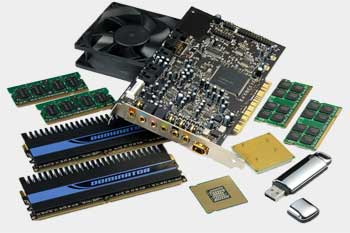 Content provides students the opportunity to acquire basic foundational knowledge and skills in both theory and practical applications in direct current, alternating current, and power supply circuits. Course content includes fundamentals of networking concepts for personal computers (PC), networking, determining system requirements, setting up equipment, and performing installation tests for the end user.
Content provides students the opportunity to acquire basic foundational knowledge and skills in both theory and practical applications in direct current, alternating current, and power supply circuits. Course content includes fundamentals of networking concepts for personal computers (PC), networking, determining system requirements, setting up equipment, and performing installation tests for the end user.
Content provides the opportunity to evaluate and install peripheral devices and become familiar with operating systems. Course content provides students the opportunity to acquire basic fundamental skills in both theory and practical applications of language, structure, and typography. Standards 11 through 13 stress layout and design guidelines as applied in the design of markup language documents. Course content will be delivered through virtual training and hands-on methods. Competencies mastered during this course help prepare students toward acquiring A+ and/or Net+ certification and/or Web design employment.
Visual Art Design
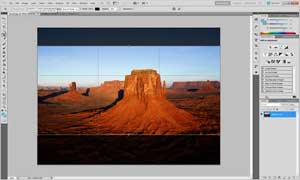 Visual Art Communications is a course that provides a foundation in aesthetic concepts and applies these concepts to the visual art, design, printing, and photography industries. Course content provides the opportunity to acquire marketable skills by examining both the visual communications industry and its career opportunities and by developing leadership, teamwork, and technical skills. Varying degrees of aesthetics are required, along with the ability to interpret many aspects of life and technology. Course content is also related to other pathways. Art and Applied Art relates to Performing Arts; Graphic Design relates to Printing Technologies; and Photographic Art relates to Printing Technologies, Journalism, Broadcasting, and Film.
Visual Art Communications is a course that provides a foundation in aesthetic concepts and applies these concepts to the visual art, design, printing, and photography industries. Course content provides the opportunity to acquire marketable skills by examining both the visual communications industry and its career opportunities and by developing leadership, teamwork, and technical skills. Varying degrees of aesthetics are required, along with the ability to interpret many aspects of life and technology. Course content is also related to other pathways. Art and Applied Art relates to Performing Arts; Graphic Design relates to Printing Technologies; and Photographic Art relates to Printing Technologies, Journalism, Broadcasting, and Film.
Document Creation
 Students will prepare business and academic report, etc. The student will demonstrate a combination of input skills (advanced keyboarding, scanning, speech recognition, handwriting recognition, and the use of a mouse) in the production of mailable business documents. Formatting, typography and layout and design concepts are applied in document preparation of business letters, forms, invoices, manuscripts, and tabulated and columnar information.
Students will prepare business and academic report, etc. The student will demonstrate a combination of input skills (advanced keyboarding, scanning, speech recognition, handwriting recognition, and the use of a mouse) in the production of mailable business documents. Formatting, typography and layout and design concepts are applied in document preparation of business letters, forms, invoices, manuscripts, and tabulated and columnar information.
Video Production
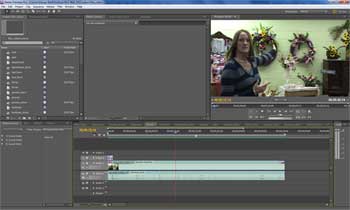 Video Production is offered in the audio and video technology sub-cluster to students who have completed Media Concepts or obtained instructor's approval. Course content focuses on electronic media production (EMP) technologies utilizing simulated and/or real-life projects. This course centers on production of various EMP products, including, commercials, news, music, interactive, and industrial programming.
Video Production is offered in the audio and video technology sub-cluster to students who have completed Media Concepts or obtained instructor's approval. Course content focuses on electronic media production (EMP) technologies utilizing simulated and/or real-life projects. This course centers on production of various EMP products, including, commercials, news, music, interactive, and industrial programming.
The student will gain valuable insight into the many facets of EMP production, including, but not limited to concept creation, scripting, sound design, visual design, engineering, editing, budgeting, and producing, as well as exploring some of the latest advances in industry technology. Upon completion of this course, students will be prepared to pursue advanced coursework.
Web 1
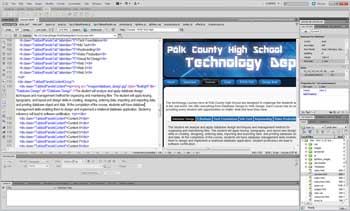 Web Design I is the first level of Web Page Design, and it prepares students with work-related skills for advancement into postsecondary education or industry. Course content includes exposure to basic Web design and the dynamics of networking/internetworking, Web hosting and Web design in e-commerce.
Web Design I is the first level of Web Page Design, and it prepares students with work-related skills for advancement into postsecondary education or industry. Course content includes exposure to basic Web design and the dynamics of networking/internetworking, Web hosting and Web design in e-commerce.
The course content provides students the opportunity to acquire fundamental skills in both theory and practical application of Web design and of leadership and interpersonal skill development. Laboratory facilities and experiences simulate those found in the Web Page Design and construction industry. Web Site I Foundations. CIW Associate Foundation Certification.
Web 2
 Web Design II is the second level of Web Page Design concentration, and it prepares students with work-related skills for advancement into postsecondary education or industry. Course content includes exposure to basic and advanced Web design, pixilated and vector-based Web graphics, Web animations, dynamics of Web hosting, and Web design in eCommerce.
Web Design II is the second level of Web Page Design concentration, and it prepares students with work-related skills for advancement into postsecondary education or industry. Course content includes exposure to basic and advanced Web design, pixilated and vector-based Web graphics, Web animations, dynamics of Web hosting, and Web design in eCommerce.
The course content provides students the opportunity to acquire fundamental skills in both theory and practical application of Web design and of leadership and interpersonal skill development. Laboratory facilities and experiences simulate those found in the Web page design and Web page construction industry. Further, this course provides for and directly maps to the Certified Internet Webmaster "Site Designer" national certification examination. Web Page Design II-Site Designer, CIW Site Designer.
Web 3
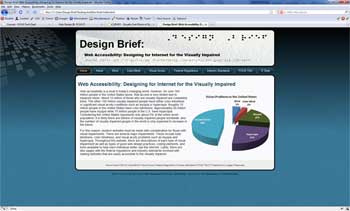 Web Design III or eCommerce corresponds to the CIW certification "Web eCommerce" which is the third level of Web Page Design. This course prepares students with work-related skills for advancement into postsecondary education or industry.
Web Design III or eCommerce corresponds to the CIW certification "Web eCommerce" which is the third level of Web Page Design. This course prepares students with work-related skills for advancement into postsecondary education or industry.
Course content includes exposure to Web design in eCommerce with marketing, customer relations, and commercial Web site publication. The course content provides students the opportunity to acquire fundamental skills in practical application of Web development, leadership, and interpersonal skill development. Laboratory facilities and experiences simulate those found in the Web page design and Web page construction industry.


